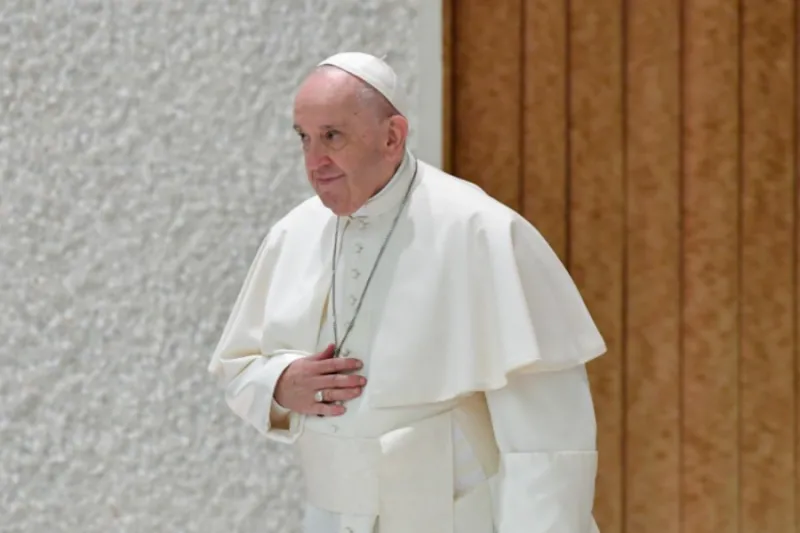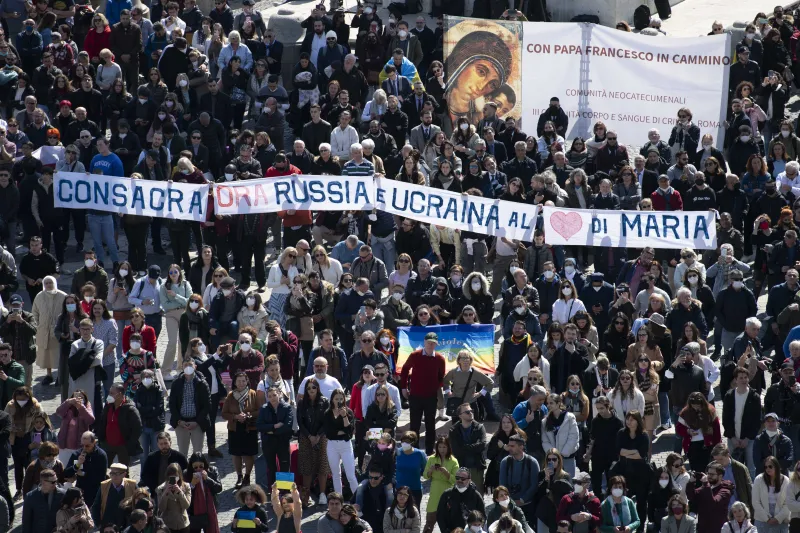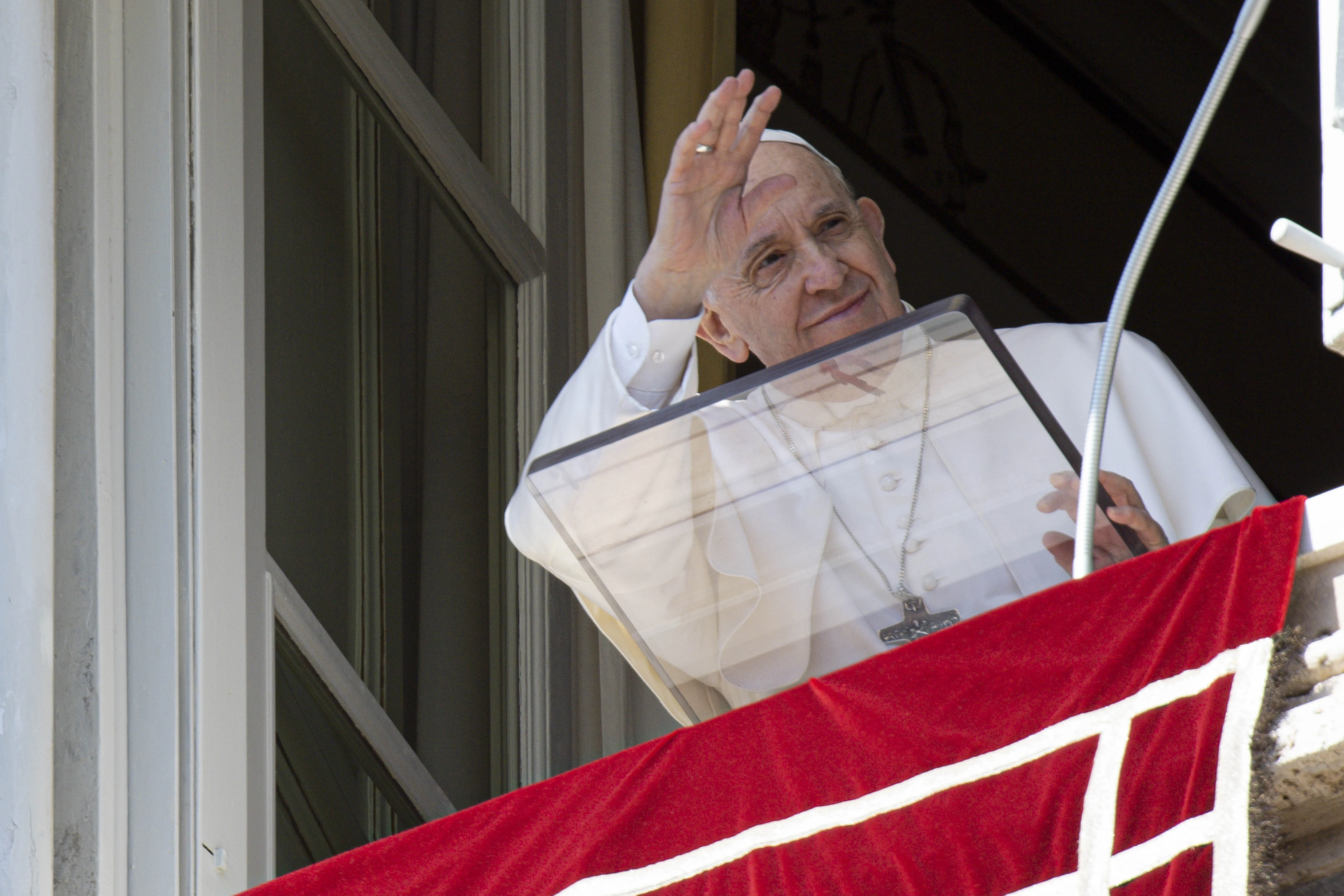

Vatican City, Nov 19, 2021 / 03:00 am (CNA).
In the eight years since his election, Pope Francis has been an active lawmaker. Beyond his well-publicized reforms, there have been many other significant but hidden legislative changes.
When making these alterations, Pope Francis has mostly acted alone. The Vatican departments that normally oversee and harmonize new legislation with existing laws have been marginalized.
This is the snapshot of the Vatican presented in a recently released book with a thesis that is, in fact, broader: that it is not only certain procedures that are at stake, but the whole edifice of canon law.
The book’s title is “La recente attività normativa ecclesiale: finis terrae per lo ius canonicum?” (“The recent normative activity of the Church: The end of the world for the canon law?”) The author is Geraldina Boni, a canon law professor at the University of Bologna who has served as a consultant of the Pontifical Council for Legislative Texts since 2011.
The book is available only in Italian and has four chapters. The first sketches the history of the Pontifical Council for the Legislative Texts, the Vatican body charged with interpreting the Church’s laws. The second is about the progressive marginalization of the dicastery. The third clarifies the dicastery’s role. The fourth proposes a reform to make it central again.
The book’s goal is to show how the pontifical council has in practice been deprived of its duties, ousted from discussions about significant reforms, and used only in sporadic cases.
But the book is also a fascinating investigation of legislative production under Pope Francis. Boni weighs in on many measures taken, from those to counter the abuse crisis to those on the nullity of marriages, explaining why the lack of checks and balances previously guaranteed by the pontifical council has generated problems.
The Italian magazine Il Regno noted in 2017 that Pope Francis had issued 50% more legislation than Benedict XVI — and in half the time. Pope Francis’ legislative activity reached its peak when he intervened to change the rules of the ongoing trial about the management of the Vatican Secretariat of State’s funds, with four ad hoc rescripts arriving during the investigation.
Boni considers this legislative activity as part of Pope Francis’ modus operandi. Hers is a real cry of pain — shared by other canonists — before a pope who makes laws and discards them without maintaining homogeneity in decisions.
Boni notes that Pope Francis has steadily centralized legislative action. She underlines that the Pontifical Council for Legislative Texts is no longer called upon to give the so-called authentic interpretations of the laws. This approach can make laws more difficult to read and interpret.
One example is the question of bishops who are guilty of negligence in relation to abuse cases, as set out in the 2016 motu proprio “As a loving mother.”
Boni stresses that the competence for assessing possible negligence “shifted” to the Vatican’s Congregations. She quotes Archbishop Giuseppe Sciacca, secretary of the Supreme Tribunal of the Signatura, who said that this shift “evidently means leaving to the discretion of the Dicastery both the evaluation of the ‘serious indications’ of negligence and the very choice of opening the procedure and the relative timing.”
Sciacca added that “we must not overlook — prudently — the danger inherent in the possibility of employing the instrument in question for distorted uses motivated by serious dissent towards a bishop or, even, within the episcopate of a region.”
The citation from Sciacca is one of many that show that Boni’s concern is not that of an isolated scholar.
Indeed, in recent years canonists have frequently noted, in more or less specialized texts, the risks inherent in this centralized legislative action.
The question is: if the Pontifical Council for Legislative Texts has in practice been set aside, along with canon law, who or what is going to function as an overseeing body to check whether new rules are consistent with the existing legislative framework?
Leaks concerning the coming overhaul of the Roman Curia are not encouraging. Praedicate Evangelium — the apostolic constitution that will regulate functions and tasks of curial offices — reportedly reduces the pontifical council to the status of an “office.” This means, according to Boni, that “canon law no longer has citizenship in the legislative activity of the pope.”
Boni’s investigation leaves many open questions. In this situation, is there legal certainty or is everything instead entrusted to the supreme legislator, who does not hesitate to adjust his provisions according to the situation, or when these do not prove consistent with the legal framework already in place?
Beyond those questions, there are other issues, such as why the pope is acting in this way. An answer might be found in the Evangelii gaudium, his “programmatic” apostolic exhortation issued in 2013.
Two of Evangelii gaudium’s main principles are “time is greater than space” and “realities are more important than ideas.” For this reason, the pope opens processes without worrying too much about the consequences. As he has often said, one cannot be held back by the rationale that “things have always been this way.”
The pope does not make cast-iron plans because realities come first. Curial reform is made “while walking,” as Cardinal Marcello Semeraro noted in the magazine Il Regno while he was serving as secretary of the pope’s Council of Cardinals.
Even legislative action, then, is subject to Pope Francis’ pragmatic approach. That rings alarm bells for Boni and other scholars of canon law. As laws can be made and then adjusted, how will it be possible to have a coherent legislative framework?
This is the reason why this book is not just about the marginalization of a dicastery. Instead, it shows the threat of a crisis for canon law.
If you value the news and views Catholic World Report provides, please consider donating to support our efforts. Your contribution will help us continue to make CWR available to all readers worldwide for free, without a subscription. Thank you for your generosity!
Click here for more information on donating to CWR. Click here to sign up for our newsletter.







Prof Geraldina’s outcry, Finis terrae per lo ius canonicum? The end of the world for canon law? is well justified by the consultor for the Pontifical Council on texts, and expectedly reported by ace CNA journalist Andrea Gagliarducci. Cardinal Semeraro tells us His Holiness makes laws, dismisses them on the fly as he sees fit. Not at all in accord with canon law, that is, whatever may impede the process [why 915 is now a Vatican museum item of curiosity]. Add to this traditional liturgy, traditional religious life, previous pontifical magisterial documentents, most significantly Apostolic tradition. “As laws can be made and then adjusted, how will it be possible to have a coherent legislative framework?” (Gagliarducci). Most are familiar with philosopher Bergoglio’s, Reality is greater than ideas [borrowed from Peron] time is greater than space. From which a universal premise may be drawn, That adjusting morals to current conditions is greater than its moral coherence with the eternal Word.
I believe that the Pontifical Council is not a law-making body but one that was established for the Promotion of the New Evangelization. It was created by Pope Benedict XVI and its responsibilities were expanded by Pope Francis. It is still active and very relevant. Some of its members might like to be more prominently involved, and so feel frustrated and lash out. However, it is doing its job.
Pope Francis does not depend only on this Council for his many decisions. It is not difficult to appreciate that in this very fast-changing world in which much needs to be done, and to be done in quick time. Fortunately, our Lord has Pope Francis implementing His will in an efficient manner as possible. Not a single doctrine has been done away with simply because our Pope is a faithful Catholic who, as a priest, is answering a special call her received from our Lord. I do trust him.
If you believe Francis is implementing the will of Christ, then you know nothing about Christ or nothing about Francis or both.